Combines the great looks of your dentures, with the stability and function you need.
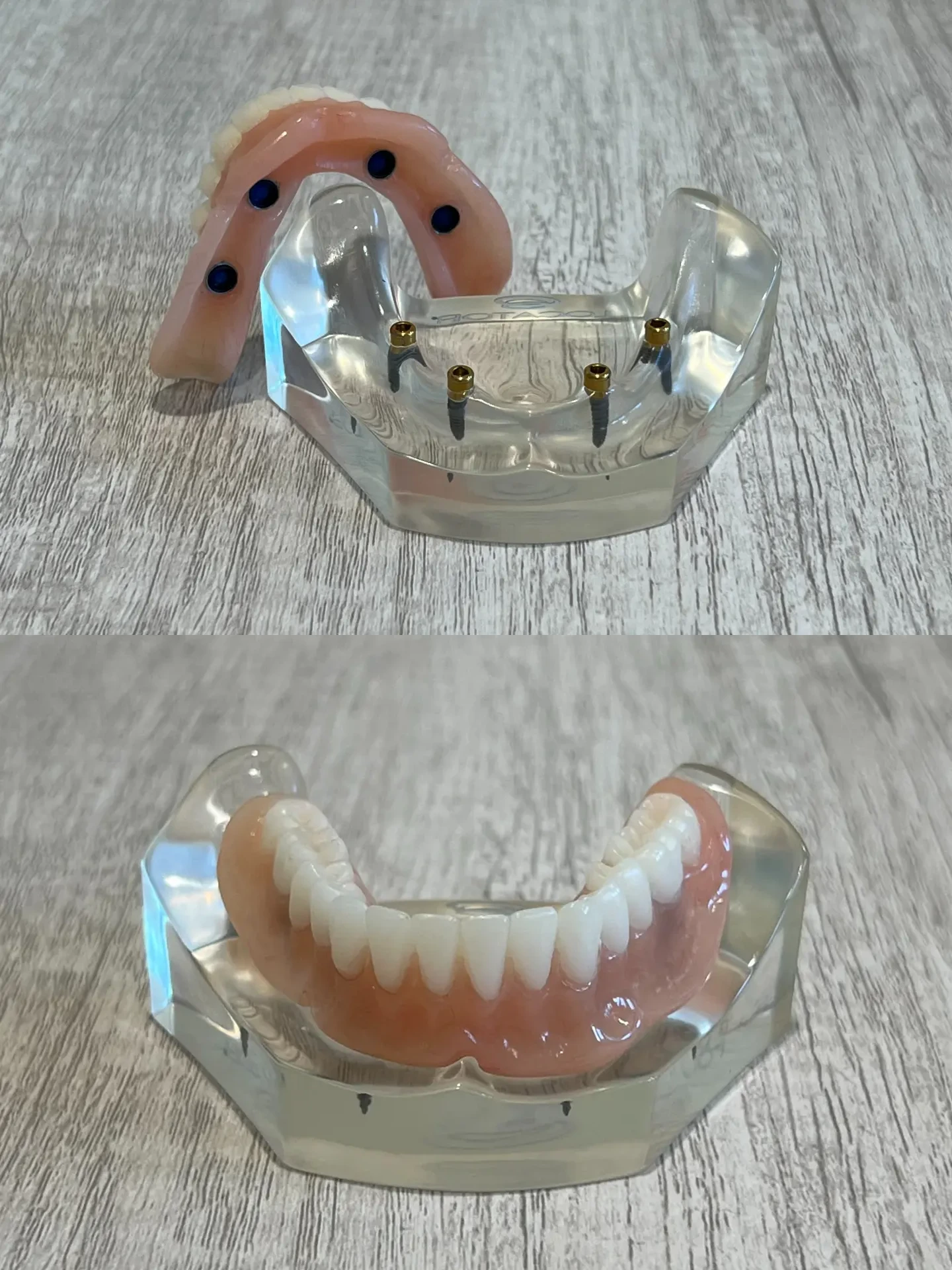
Anchoring your dentures with dental implants allows you to:
Most patients are candidates for Snap-In Implant Dentures!
We’ll just need to see you for a quick consultation to know for certain. During your Complimentary Consultation, we’ll take a 3D scan of your jaw, our doctor will perform an oral examination of your mouth, and they will review your medical history with you.
While traditional dentures typically look nice and are usually the most cost-effective way to replace failing or missing teeth, they can leave a lot to be desired in terms of function, stability, and chewing ability.
Here are some shortfalls of traditional (non-implant) dentures:
Snap-In Implant Dentures help improve or eliminate all of these issues.
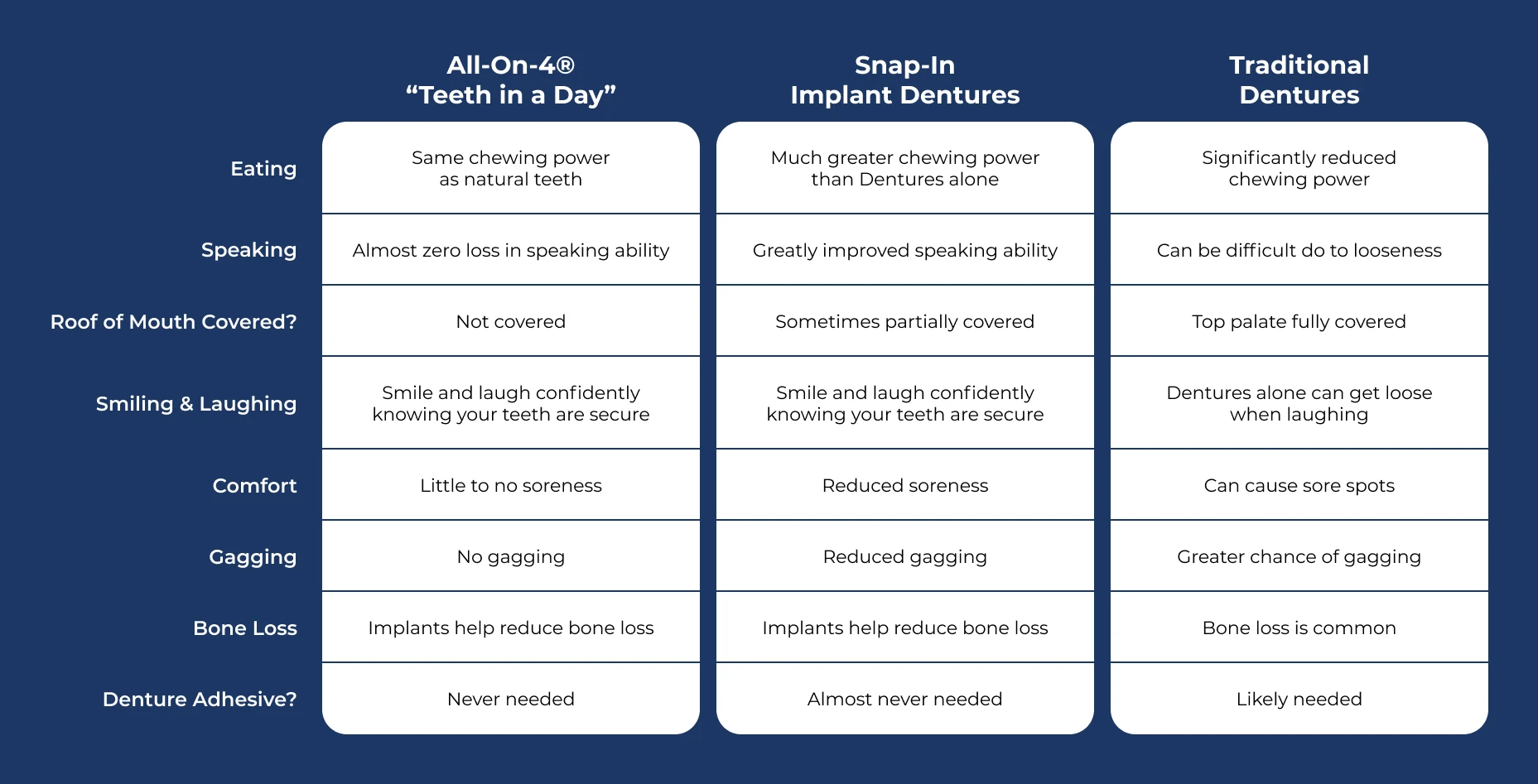
Real smiles from actual patients
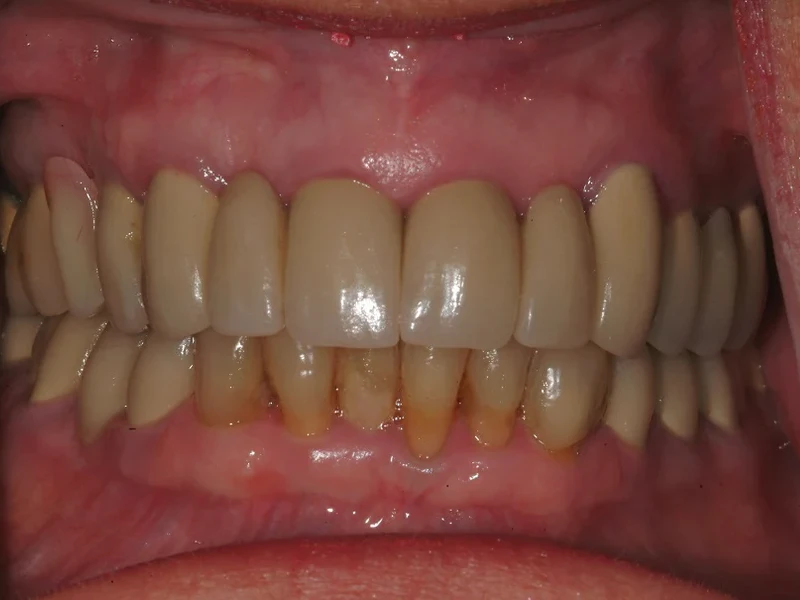
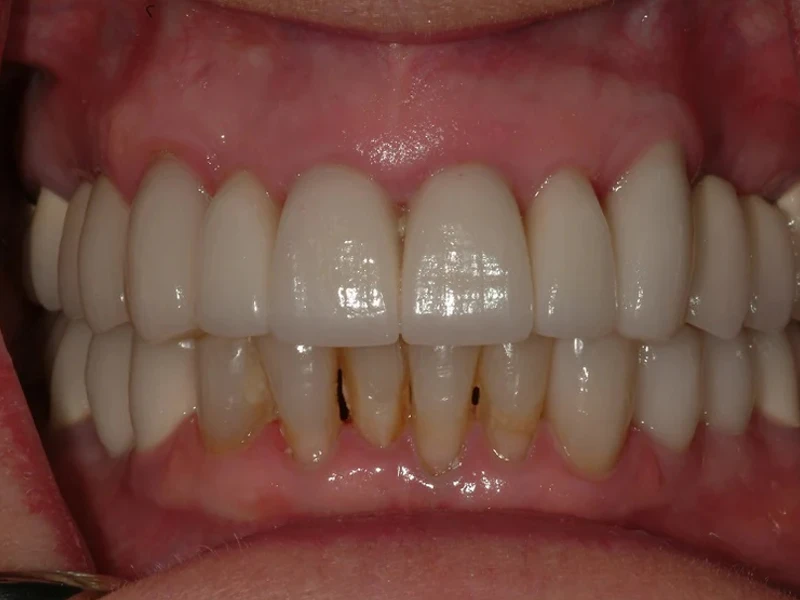
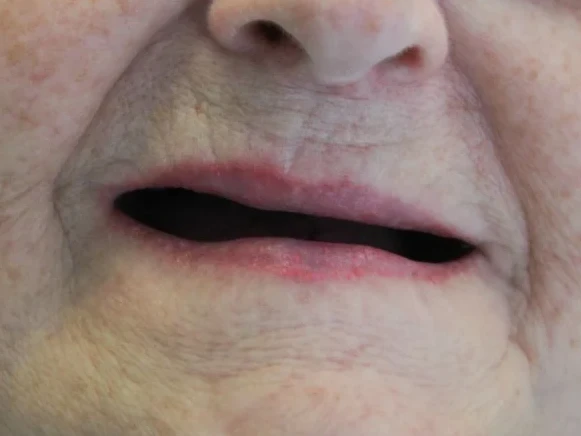
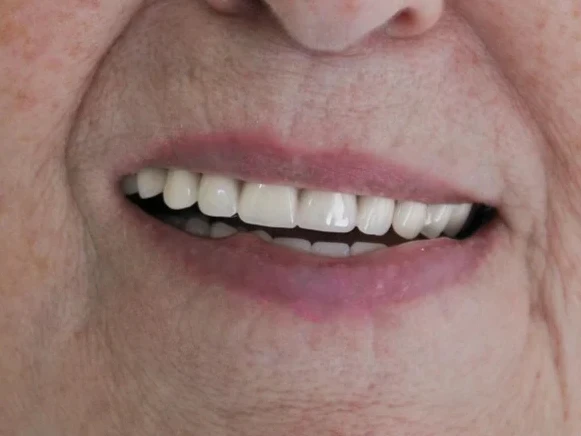
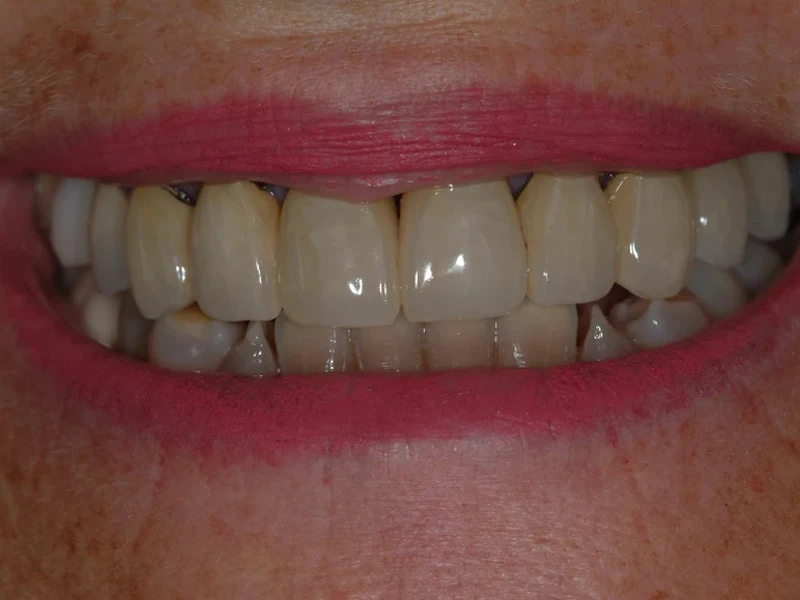
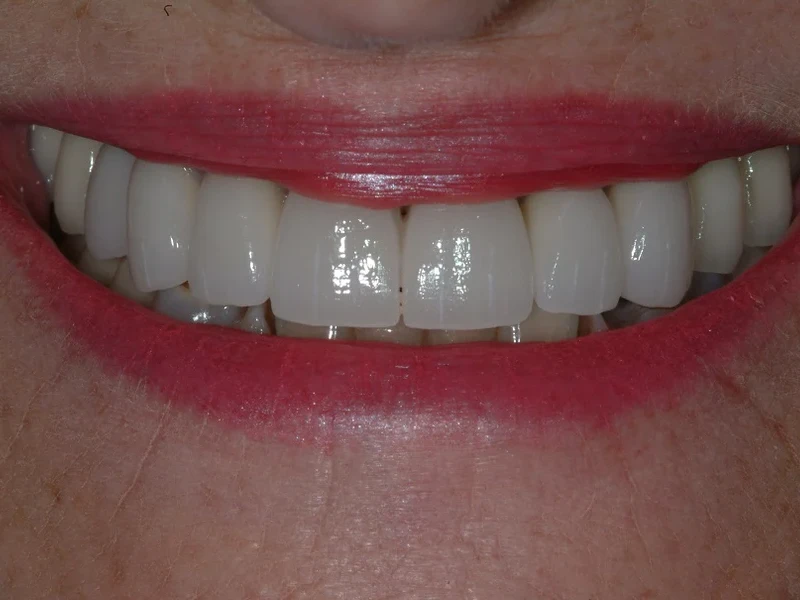
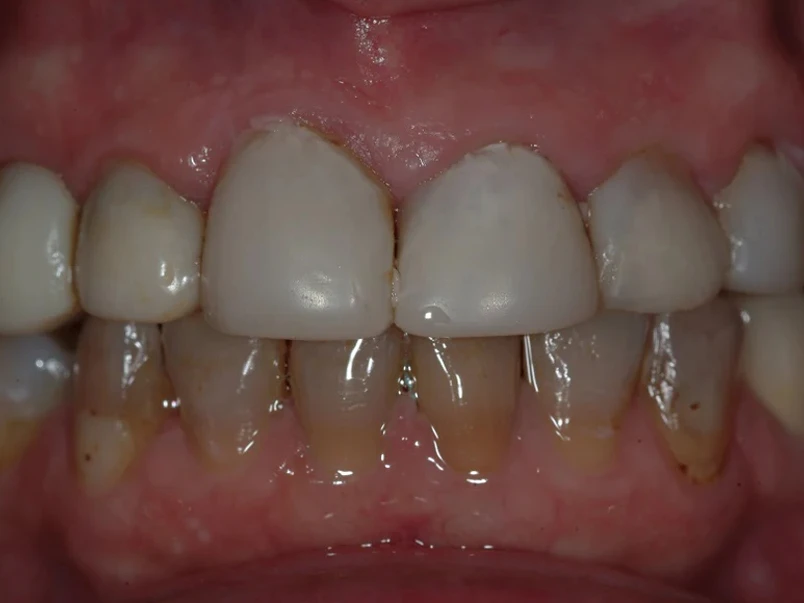
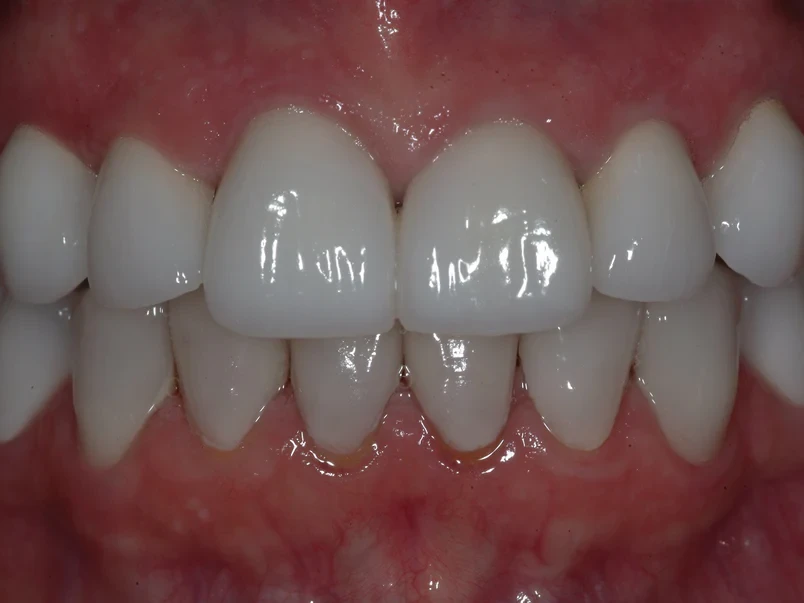
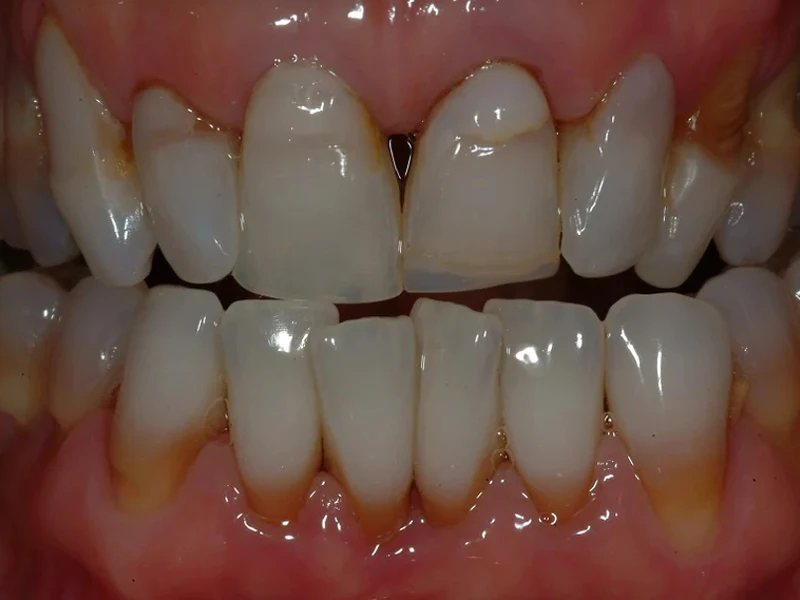
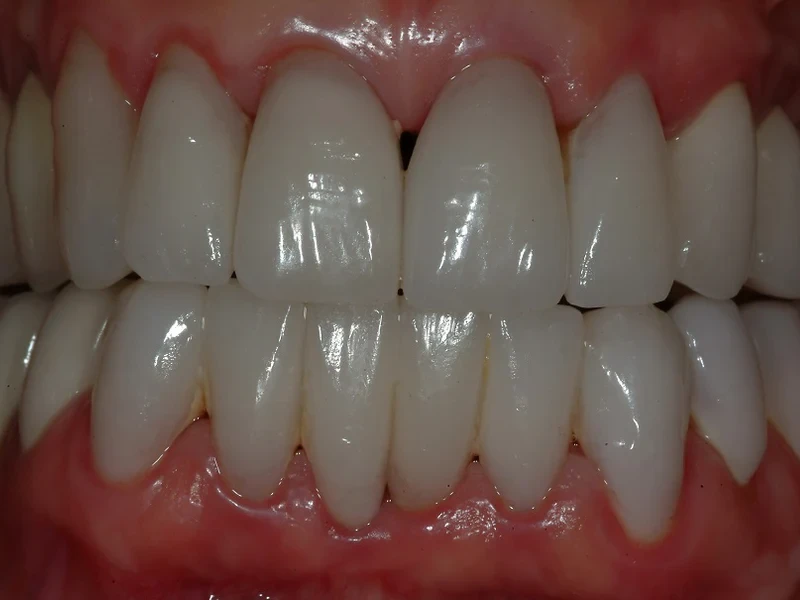
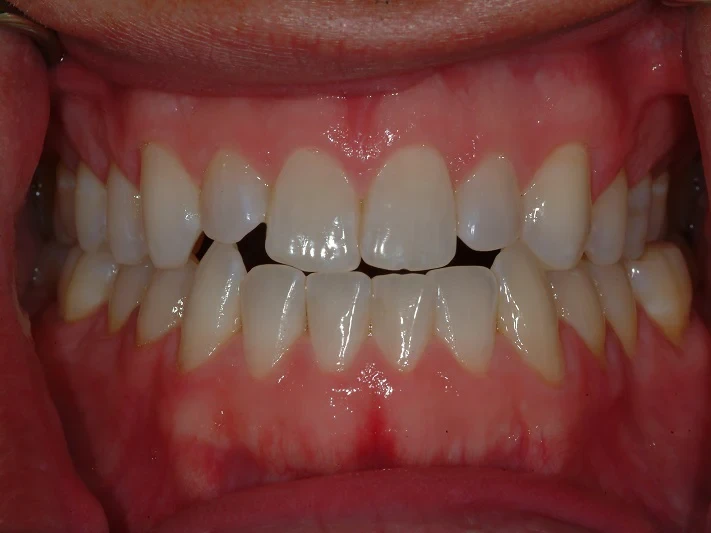
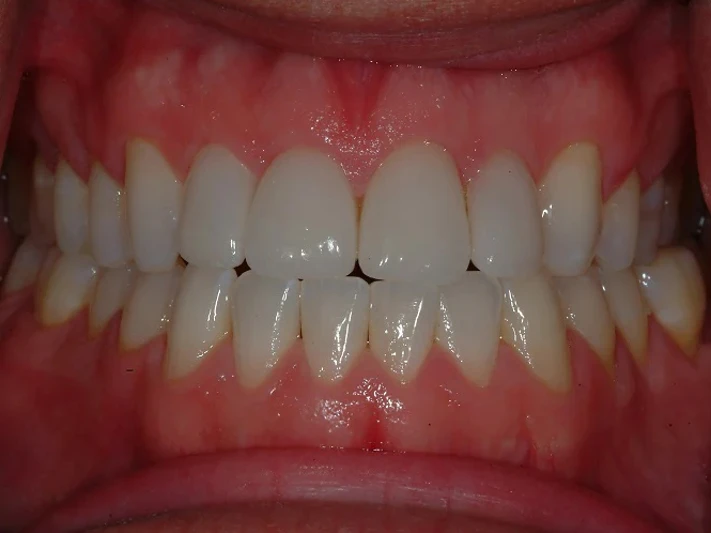
Lower
Replaces all of your bottom teeth with a secure denture held in by 2 dental implants.
This price includes 2 dental implants, abutments, snaps, and the snap-in denture. It does not include the price of extraction.
Single Arch
Replaces all of your top OR bottom teeth with a secure denture held in by 4 dental implants.
This price includes 4 dental implants, abutments, snaps, and the snap-in denture. It does not include the price of extraction.
Both Arches
This replaces all of your top AND bottom teeth with a secure denture held in by 4 dental implants on each arch.
These replace all of your top AND bottom teeth with secure dentures held in by dental implants. This price includes 8 dental implants (4 upper, 4 lower), abutments, snaps, and your snap-in dentures. It does not include the price of extraction.
Dental Implants are an important investment in yourself. Having the option to break this investment down into monthly payments can help make these life-changing services more accessible and easier to fit into your budget. We work with a variety of financing providers that offer payment plans to cover either all or part of your dental implant procedure. This is a great option for all patients, especially those who are on a fixed income. With these flexible financing options, you can enjoy the benefits of a healthy, beautiful smile without breaking the bank.
Contact us to learn more about our financing options and schedule your Complimentary Consultation with Dr. Patel today!

Proceed Finance has partnered with us to create affordability for patients. They offer lending products that were created to finance dental and medical cases.
LendingPoint is a fast-growing direct lender that makes personal loans of up to $15,000.

United Medical Credit connects you to medical lenders that allow people to pay off medical bills over time.
An upper Snap-In Denture requires at least 4 implants. A lower Snap-In Denture requires at least 2 implants. The more implants you have, the more stable your Snap-In Denture will generally be. This is especially true with the lower denture. 3 or 4 implants in the lower denture is usually much better than 2.
Click here to see our pricing and financing options for Snap-In Dentures.
In many cases, yes! We’ll just need to see you for a consultation, during which we will do a 3D CBCT scan of your jaw to see if you have enough bone to support dental implants.
No, we want to allow time for your implants to integrate with your jawbone. This is what makes your implants truly stable and will help ensure you enjoy many years to decades of use out of them. We typically wait between 4 and 6 months before attaching to your Snap-In Denture.
After a Snap-In Implant Denture procedure, it is common to experience some degree of discomfort or pain. The level of pain can vary depending on individual factors such as pain tolerance, the complexity of the procedure, and the body’s healing response. Typically, the first 48 hours after the procedure is when you will experience the most discomfort. However, the pain is typically manageable and should subside over time as the healing progresses.
Yes! We offer a couple options for sedation depending on what is the right fit for you:
Oral Conscious Sedation involves a prescription for sedative pills that are prescribed to you by our doctor. Sedative medication is typically given the night before to help you sleep, as well as the morning of your procedure to ensure your comfort throughout the procedure.
IV Sedation involves the intravenous administration of sedatives in order to put you in a diminished state of consciousness throughout the entire procedure. This also has other benefits for reducing post-operative swelling and pain.
Yes, Snap-In Implant Dentures are much more secure than dentures and don’t require any adhesive! We are also able to increase the retention with stronger inserts if you prefer a tighter fit.
It depends on your specific case and where we’re able to place the implants. Ideally, if we’re able to spread the implants out, we might be able to remove a portion of the palate in a Snap-In Denture. With our All-On-4 procedure, we can guarantee the ability to remove the palate, but that’s not always the case with Snap-In Implant Dentures.
Removing the top palate increases the ability to taste for many patients, and also increases hot and cold sensitivity, making for a more natural experience. For patients with a severe gag reflex, removing the palate of the denture can help provide additional relief.
Typically 1-2 times per year, but this will depend on a number of factors so our doctor will be able to tell you a more precise answer for your unique case.
WARNING: PLEASE DO NOT BITE YOUR DENTURES INTO PLACE ON YOUR IMPLANTS! This will wear out your inserts much faster. You should always secure your implant dentures by hand.
Alveoplasty is a procedure where our doctor contours your jawbone. This procedure may be recommended to improve the fit and comfort of your dentures.
Tori are bony knots that develop in the mouth of many patients. They are not harmful, however, they can prevent your denture(s) from fitting comfortably, so our doctor may recommend having them removed.
Drooling occurs when a foreign body stimulates the saliva response. This is designed to aid in the breakdown of food when you are chewing. A new denture will mimic that response but don’t worry, your body will adapt and you will return to a normal saliva response in a few days.
Bleeding after the Snap-In Denture procedure is normal and expected during the immediate post-operative period. The duration and amount of bleeding can vary from person to person, but typically it should subside within the first 24 to 48 hours after the surgery.
If you notice that bleeding persists beyond the expected timeframe or if you experience severe or uncontrollable bleeding, it’s important to contact our office immediately. We can evaluate your situation and provide appropriate guidance or interventions to address the issue.
We do not currently offer zirconia implants. Titanium implants have been around for decades with a long track record of success, but unfortunately, zirconia implants are still very new to the market, so we do not know what their success will be like long-term. We always strive for the most successful and predictable long-term results, and for these reasons, we do not offer zirconia dental implants at this time.
Yes, any oral prosthetic will get some amount of food underneath it. The great thing about Snap-In Implant Dentures is how easy they are to clean. Just take them out, clean your denture, gums, and implants, and snap them back in!
Generally, 4-7 days is sufficient. With that said, there is always the chance of bruising and swelling, and you’ll need to get used to eating and speaking with your new teeth. The longer you can take off the better.
A soft liner is a cushion we place inside your denture to help it fit and feel better as your mouth heals and changes shape after your extractions.
Deciding to undergo any dental procedure, including the Snap-In Denture procedure, is a personal choice that depends on various factors, including your oral health, specific dental needs, and your dentist’s recommendation. While age can be a consideration, it is not the sole determining factor for determining suitability for the procedure.
The Snap-In Denture procedure is typically recommended for individuals who have multiple missing teeth, severely damaged teeth, or significant tooth loss. It is designed to provide a secure and functional set of teeth supported by dental implants. The decision to proceed with the Snap-In Denture procedure is usually based on factors such as overall oral health, bone density, and individual circumstances.
If you feel like you are too young for the procedure, it is important to discuss your concerns with your dentist. They will evaluate your specific situation, assess your oral health, and discuss the available treatment options with you. They can provide insights into the benefits, risks, and long-term considerations associated with the procedure, taking into account your age and individual circumstances.
Remember that age alone does not determine eligibility for the Snap-In Denture procedure. It is important to have a comprehensive evaluation and discussion with your dental professional to determine the most appropriate treatment plan for your specific needs and goals. They can address any concerns you may have and help you make an informed decision about your dental care.
Preparing for your recovery after a Snap-In Implant Denture procedure can help ensure a smoother healing process. Here are some items you may want to have ready:
Snap-in dentures are very similar to the function of natural teeth, but they will feel different when you chew. This really only applies to somebody that was not wearing a denture prior to the procedure. So we recommend that you use them as if they were natural teeth. The only limitation that you may run into is biting excessive force on the front of the denture May cause the back part of the denture to dislodge.
After the Snap-In Denture procedure is complete, you may need some time to adjust to and learn how to use your new teeth properly. While the process of adapting to the new teeth varies from person to person, here are some general considerations:
Remember that each person’s experience and adaptation process can vary. With time, practice, and patience, you should become increasingly comfortable and proficient with using your new teeth. If you have any concerns or difficulties, do not hesitate to reach out to our office.
After receiving new teeth through a Snap-In Denture procedure, it may take some time to adjust and become comfortable speaking with them. While each person’s experience may vary, here are some general considerations:
The adaptation period will vary from person to person. Some individuals may adjust relatively quickly, while others may require more time and effort. As you continue to use your new teeth for speaking and engage in normal conversations, you should gradually regain confidence and improve your speech.
Some patients may experience very slight rocking. For patients who have 2 lower implants, these must be placed in the front of the jaw, making it possible for some rocking to occur. A dab of adhesive at the back on each side of the lower denture will usually take care of this. Placing 4 implants on your bottom Snap-in Denture will significantly help prevent rocking.
In this case, you should consider the All-On-4 procedure. Not all candidates for Snap-In Dentures will also be candidates to have the top palate removed.
Yes. Having removable implant dentures makes cleaning them very easy. Just take them out, clean your denture, gums, and implants, and snap them back in!
Yes, implants can fail and there are many factors that influence a failure. Infection, hygiene, medical conditions, smoking, diabetes, and neighboring tooth infection can all be major risk factors that contribute to an implant failing. It is recommended that you follow our post operative instructions to ensure that you do everything in your power to have a successful implant therapy.
Snaps | Periodically, you’ll need to swap out the snap rings in your Snap-In Implant Dentures. These will wear and lose retention over time and as you take your teeth in and out. They’re quick and affordable to change.
Cleanings | Just like natural teeth, you’ll need to have your Snap-In Dentures cleaned periodically. Any buildup on your Snap-In Denture teeth will be removed and your dentures will be cleaned.
Periodic Re-Fittings | Your mouth will slowly change over time, so your Snap-In Dentures will need to be re-fitted to ensure their best performance and ensure that unnecessary stress isn’t being put on your implants.
Home Maintenance | This only takes a few minutes each day. Take your Snap-In Dentures out 1-2 times per day and brush them with a denture brush or very soft bristled toothbrush. Also, don’t forget to clean your implants – you’ll want to scrub these with a very soft dental brush.
The process typically takes around 6 months from start to finish.
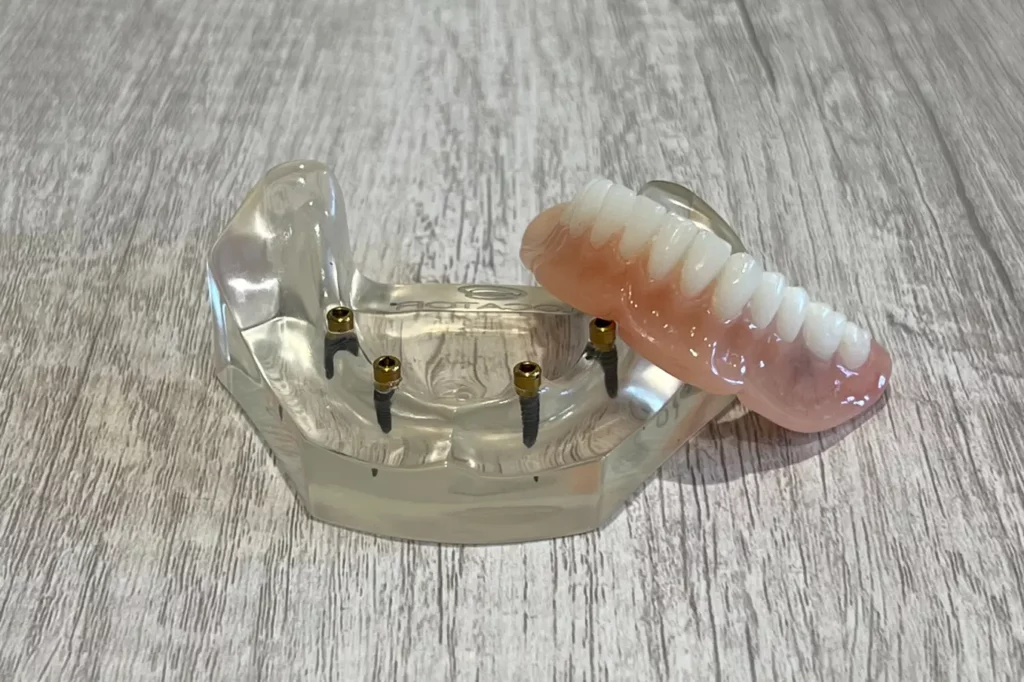
Our patients are our biggest fans. Here are a few highlights from our public reviews.
Monday
8:30AM – 5:00PM
Tuesday
10:00AM – 7:00PM
Wednesday
9:00AM – 6:00PM
Thursday
8:00AM – 5:00PM
Friday
CLOSED
Saturday
CLOSED
Sunday
CLOSED
We are happy to help you book an appointment, schedule a Complimentary Consultation for dental implants, or answer your questions. Please fill out our contact form and we will get back to you shortly!

Your Complimentary Virtual Consultation will include:
After your virtual consultation, we will invite you to schedule a complimentary in-person consultation with Dr. Patel so he can take x-rays and make a final determination on your treatment options.